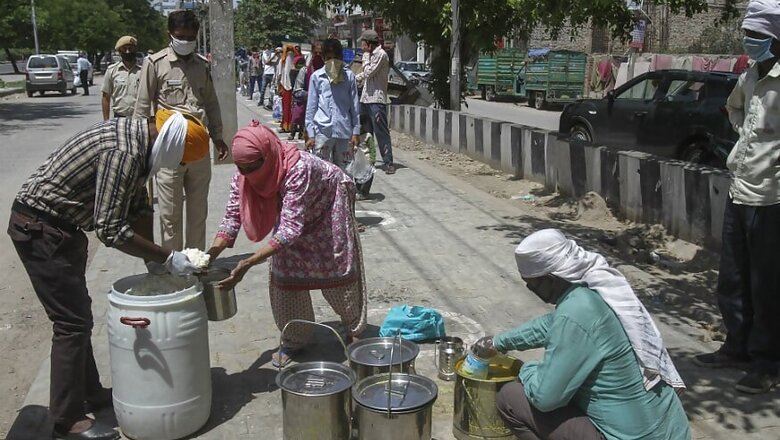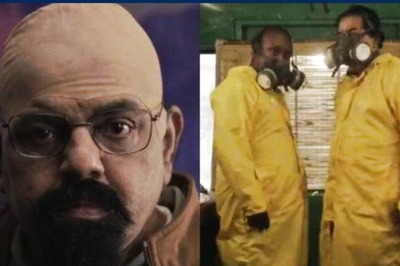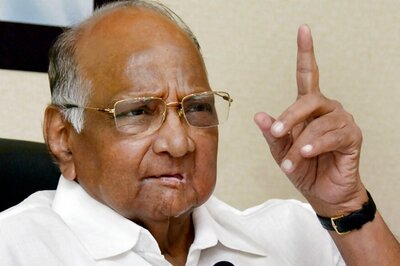
views
Geography and identity will be the same but politics all over the world may change forever because of the novel coronavirus pandemic. What we are observing is the medicalisation of politics and politicisation of medicine emerging all over the globe and deforming our classical politics.
For instance, demand, pressure, negotiation, and threat politics is going on around hydroxychloroquine, seen as a possible coronavirus medicine. American President Donald Trump assertively requested Prime Minister Narendra Modi for the supply of the drug. On the other hand, Brazilian President Jair Bolsonaro wrote a persuasive letter, urging for the supply of this 'sanjivani buti’. He used an expression from Ramayana to touch the hearts of Indians and PM Modi. India has received request from more than 30 countries to get this medicine.
The attainment of the drug has formed the nucleus of international relations amid the pandemic and has also emerged as an opportunity for leaders to gain popularity in their own countries. Hydroxychloroquine is political capital at this moment in all many parts of the world.
Medicalisation of Indian politics too appears inevitable. We are rating our leaders based on their performance in controlling this pandemic: their efforts to save the people, their attempts to enhance and reshape medical facilities and develop quarantine centres in their states.
We observe people discussing the good work done by leaders like Arvind Kejriwal, Ashok Gehlot, Bhupesh Baghel, Yogi Adityanath, Pinarayi Vijayan and others, going beyond party commitments. Narendra Modi has emerged as the 'saviour family head’ who provides hope to win in this war against an invisible enemy.
A section of the people may be critical towards his 'bell-ringing and 'diya jalao' projects, but many see these events as a way to ensure people's involvement in this state-led operation against Covid-19. Modi is constantly trying to secure people's involvement in this mission, which may emerge as political capital for him in future.
The outbreak has also made the practice of 'helping the most vulnerable’ appear very pertinent social action for all political, religious and social organisations. States and their leaders are also being scrutinised and rated based on their welfare measures, rescue strategies and support systems which they are providing and weaving for the most vulnerable communities, such as migrant labourers, and the poor who are being seen as soft targets for coronavirus infections.
Welfare politics is moving from class and caste to biological categories such as age, gender, medically vulnerable, etc. These categories may not continue in the current form for a long time, but the Covid-19 crisis, which will stick around until a vaccine is invented, will dilute conventional political identities such as caste and religion for a while.
The pandemic also spotlights the social function and relevance of many religious and socio-cultural organisations such as ISKCON, Ramakrishna Mission and various popular sects and akharas. One can also see RSS workers engaged in providing food to the poor in various parts of the country. So 'seva politics' (reaching the people through service) is going to become a very important form of mobilisation in the future of Indian politics.
The coronavirus will also completely change the notion of heroes and icons of our society and politics. Instead of retired military personnel, we find doctors, nurses, pharmacists, food providers, etc, appearing more frequently in TV channel debates and in public functions. People may trust them more and some of them may emerge as more respected social icons. Our patriotism may redefine itself by including service to society and sacrifices made for people's contribution in fighting corona.
So, in the future , at least for a few years, medicalisation of politics may be at the centre stage, apart from seva politics. The language of Indian politics, which was full of superficial remarks and personal comments may extend itself to some ethical concerns of human existence. If it happens, it will be a door to renaissance of politics in the country.
(The author is professor and director of GB Pant Social Science Institute, Prayagraj. Views are personal.)



















Comments
0 comment